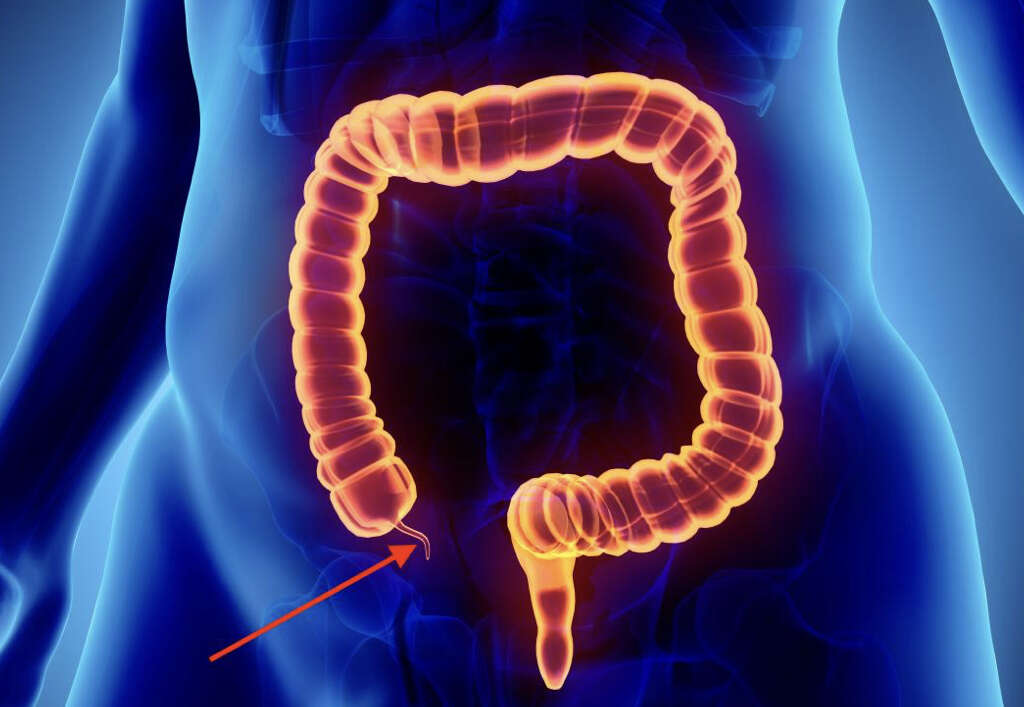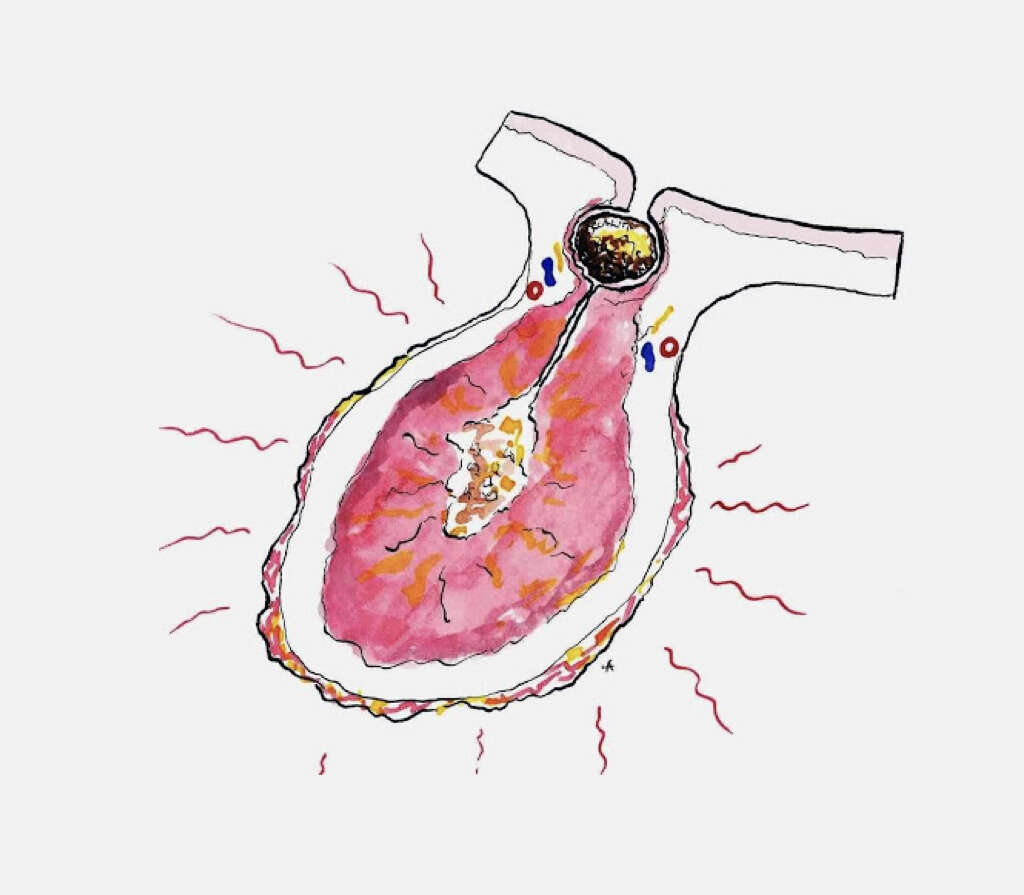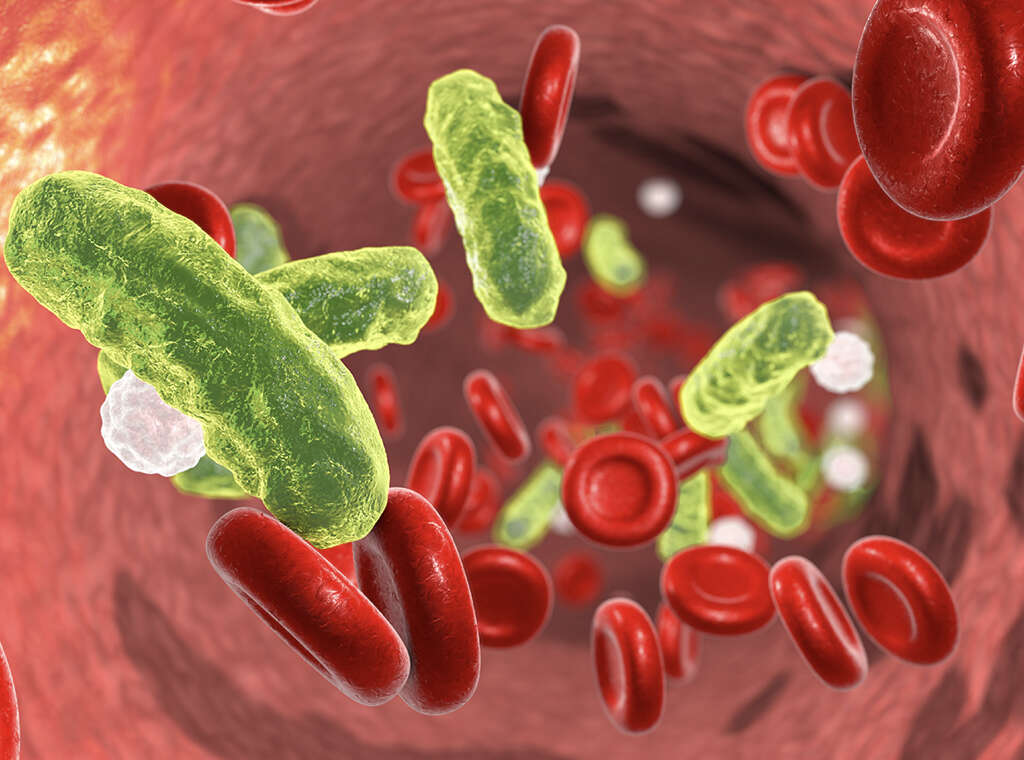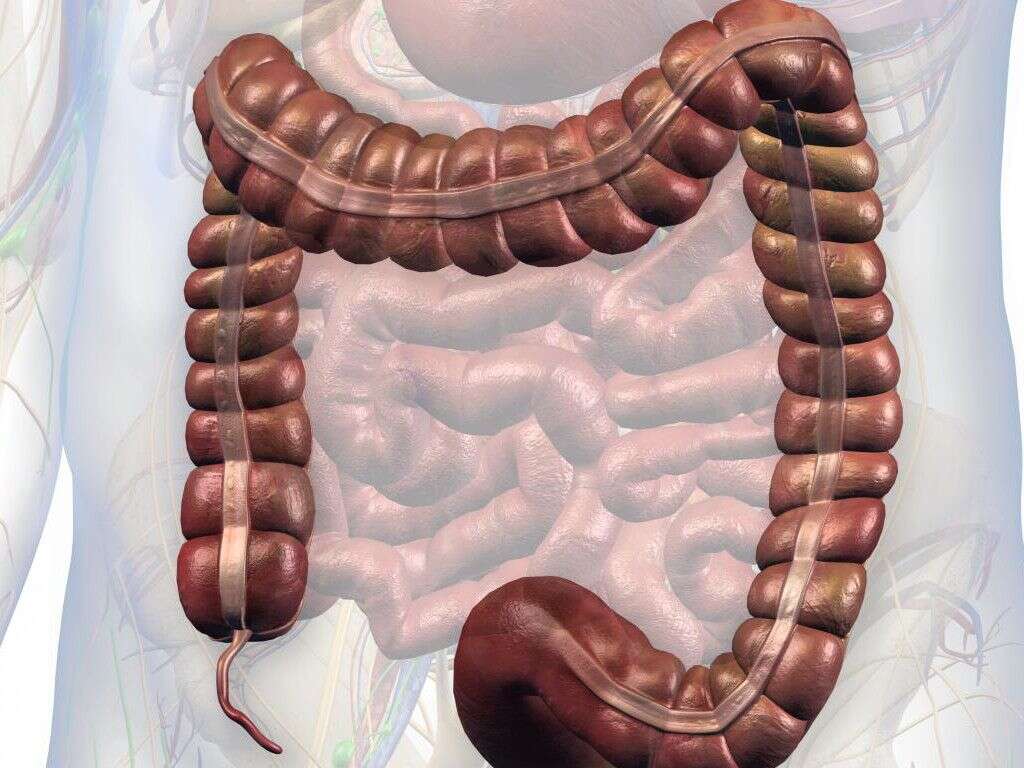What Is Chronic Appendicitis?
While you are likely more familiar with the more common condition of acute appendicitis, chronic appendicitis can still be an issue of which you should be aware. The condition is characterized by recurring pain near the belly button or right side. Unfortunately, chronic appendicitis can cause health complications over time.
While there are several conditions that may cause abdominal pain, if a person is experiencing certain symptoms on a regular basis, chronic appendicitis is one potential cause to consider. Here’s a breakdown of chronic appendicitis.

1. What Is Chronic Appendicitis?
Chronic appendicitis is a recurring condition of inflammation and discomfort in a person’s appendix. It is generally considered to be a rarer medical condition, but it still affects thousands of people in the United States each year.
The most common age group to suffer from chronic appendicitis is people in their early teens to early thirties. While the condition may be most common in this group, it can potentially occur in any individual regardless of age, gender, or other traits.

2. What Is the Difference Between Chronic Appendicitis and Acute Appendicitis?
It can be important to recognize the difference between chronic appendicitis, which is inflammation that causes relatively mild pain and may recur every so often, and acute appendicitis, which can be a much more serious condition. Acute appendicitis is generally more painful and sudden. Acute appendicitis may occur without warning, worsening over about a day or two.
Acute appendicitis may occur in people who have suffered from chronic appendicitis in the past, but it can also show up in people who have never experienced appendix issues before. If the pain a person is experiencing is sudden and severe, the affected individual should be taken to see a doctor as soon as possible, as this condition is considered a medical emergency.

3. What Are the Most Common Symptoms of Chronic Appendicitis?
While the most common symptom of chronic appendicitis is mild to severe pain in the affected person’s lower abdomen, there are other symptoms that go along with the condition. Different people may experience some symptoms and not others, but anyone who regularly suffers from these issues should go to a doctor for further diagnosis.
In addition to abdominal pain, symptoms such as swelling in the abdomen and generalized feeling of discomfort can also be common. Mild to severe fever may also be present, though this can be a sign of other health conditions as well.

4. What Other Symptoms of Chronic Appendicitis May Occur?
Chronic appendicitis can be a surprisingly difficult condition to diagnose. This is largely due to the fact that the symptoms can vary so much between patients and come and go unpredictably. Some people may experience some less common symptoms in addition to the ones listed above.
Lesser-known symptoms that should also be noted are nausea and diarrhea. A lack of energy or feelings of weakness can also occur. In more serious cases, a person may experience vomiting and extreme pain that worsens with movement. Emergency care may be needed in these cases.

5. What Causes Chronic Appendicitis?
The appendix is a small, pouch-like structure located on the right side of the body. Unfortunately, the location and type of tissue that makes up the appendix can make it a hotspot for becoming infected.
Chronic appendicitis is caused by swelling of an infected or irritated appendix. The infection may be caused by a blockage that forms at the appendix or the buildup of bacteria within it.

6. How Is Appendicitis Diagnosed?
A person who believes they may be suffering from chronic appendicitis may need to go through several processes to get a diagnosis. There are a few other medical conditions that can exhibit similar symptoms to appendicitis that will need to be ruled out. A patient may be examined for health issues such as urinary tract infections and ovarian cysts. Female patients may also be given a pregnancy test.
There are several ways a doctor may examine a person for appendix issues. They may take blood tests and give the patient an X-ray, MRI scan or abdominal ultrasound. While this can be a tricky condition to diagnose, through a variety of tests, the root of the problem can often be discovered.

7. What Health Complications Can Occur from Chronic Appendicitis?
Appendicitis can turn into a serious condition when not treated with proper care. The infection that causes the appendix to swell can also cause it to fill with pus and may even lead to a bursting or ruptured appendix if left untreated.
Health complications that can result from an infected appendix include an extreme infection called sepsis or abscess, which is a pocket of infection. While these complications can be very unpleasant, they are often avoidable through proper care.

8. Is Chronic Appendicitis Curable?
Avoiding the worst health complications of appendicitis may involve coming up with a specific plan with your doctor that works for you. Chronic appendicitis may not be as urgent as acute appendicitis, but it can grow worse over time, so it’s vital to communicate with your doctor.
Oftentimes the symptoms of chronic appendicitis can be managed to reduce its impact on a person’s life. The affected person should be mindful of relapses, especially worsening pain that may indicate more complicated treatment is necessary.

9. What Are the Treatments for Chronic Appendicitis?
When chronic appendicitis becomes severe or turns into acute appendicitis, surgery may be necessary to fix it. Surgery involves either the draining of pus from the appendix or the removal of the appendix itself. Removal is meant to solve the problems experienced by the patient by preventing future infection. Antibiotics may also be prescribed.
There may be multiple options available to a person suffering from appendicitis, including different choices for less-invasive styles of surgery. The patient should communicate and voice their concerns to their doctor in order to get the help they need.

10. How Can Chronic Appendicitis be Prevented?
The best way to protect your health from appendicitis complications can be to visit a doctor if you start to develop symptoms. As with any health-related issue, healthy eating and lifestyle may help reduce your risk, but remember that appendicitis can still affect anyone.
While there is no sure way to make sure you never get appendicitis, being informed and getting early treatment can greatly reduce the risk that it will turn into a severe condition. As it is an issue that can affect kids and teens, it is something parents should keep in mind. If you or someone else is experiencing pain in your lower abdomen, it is not something to ignore.









